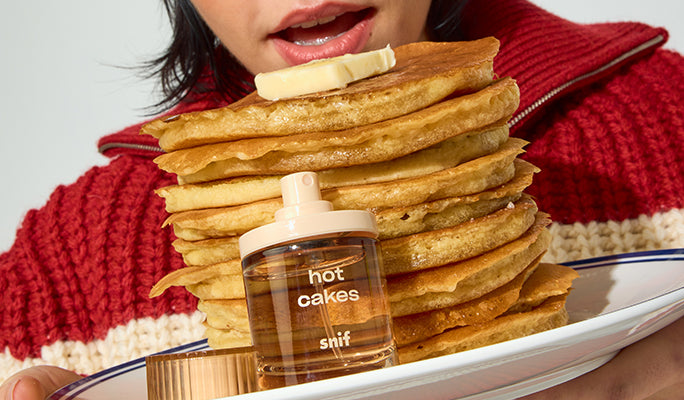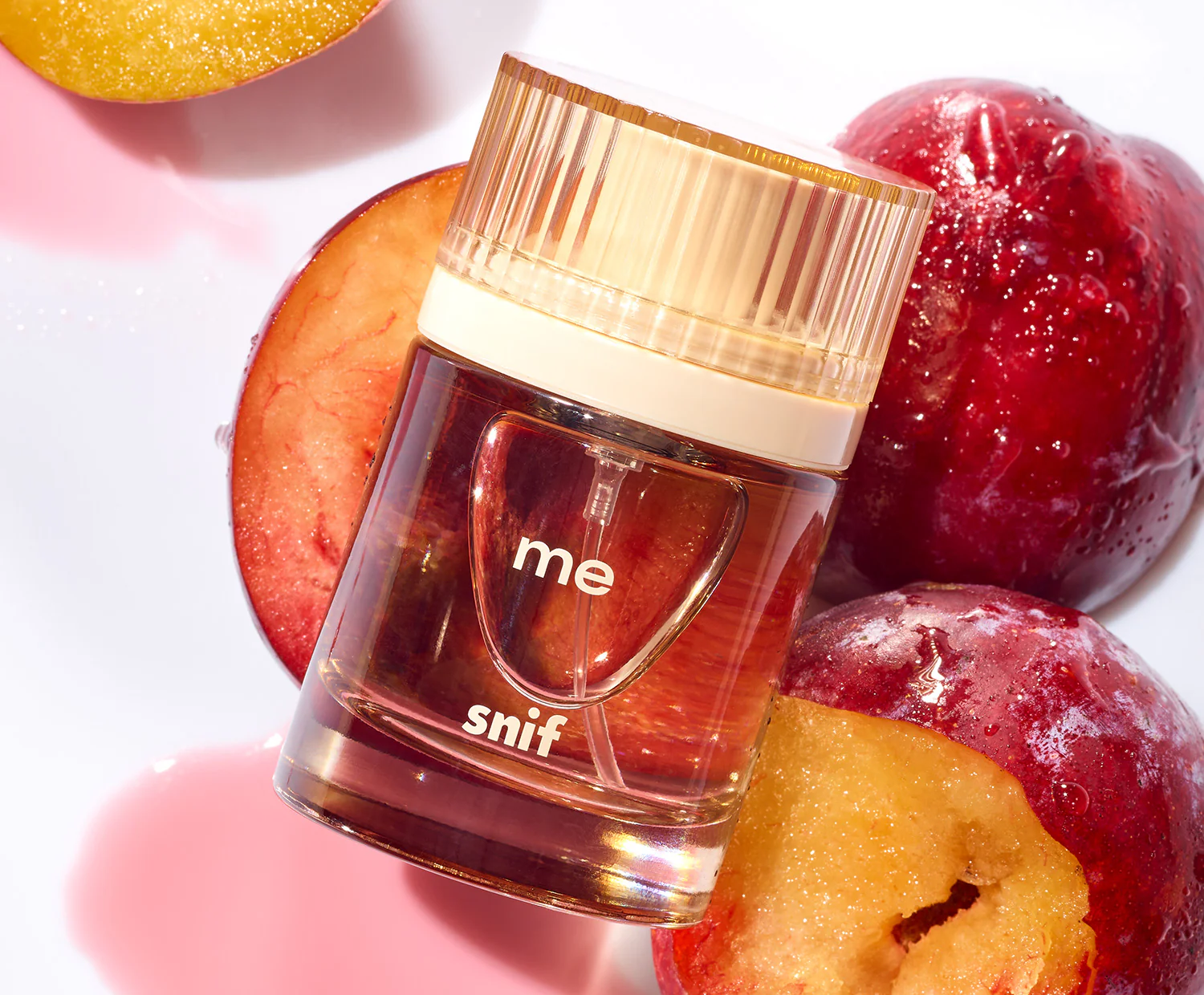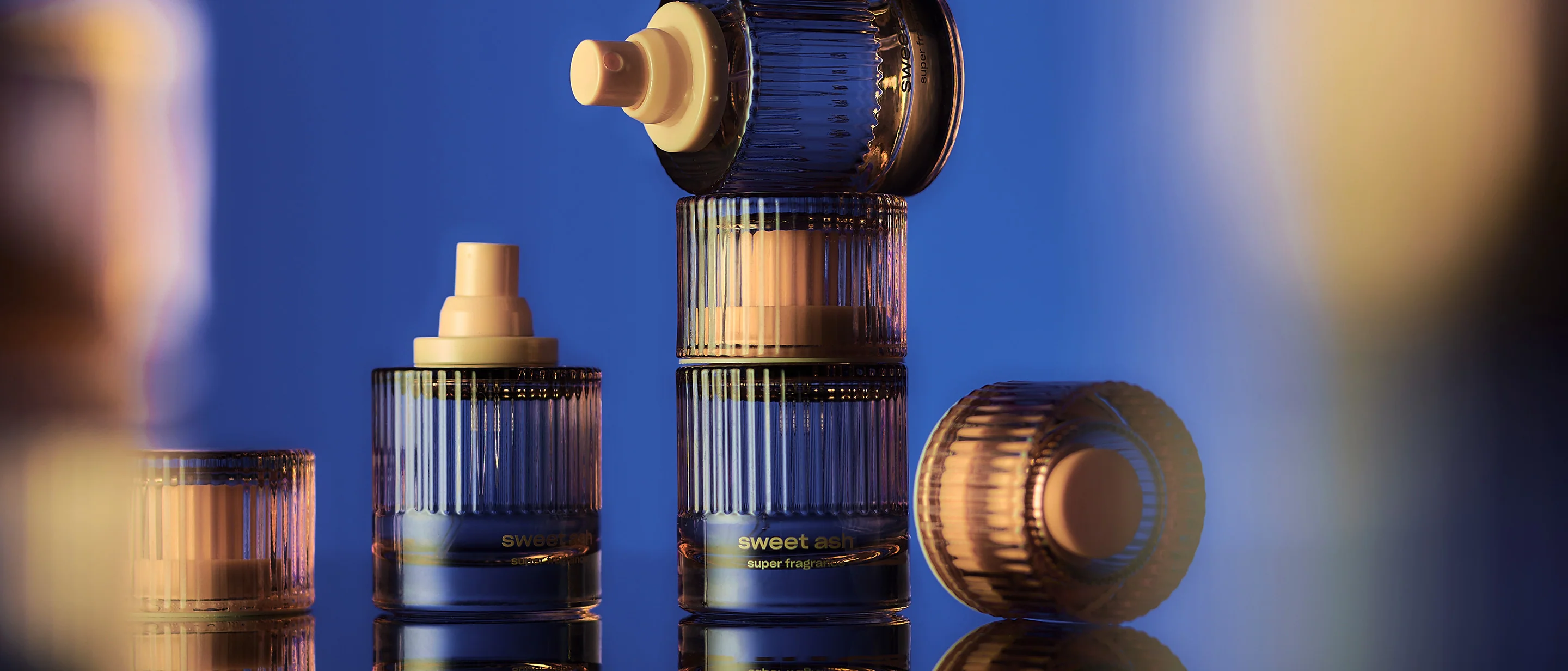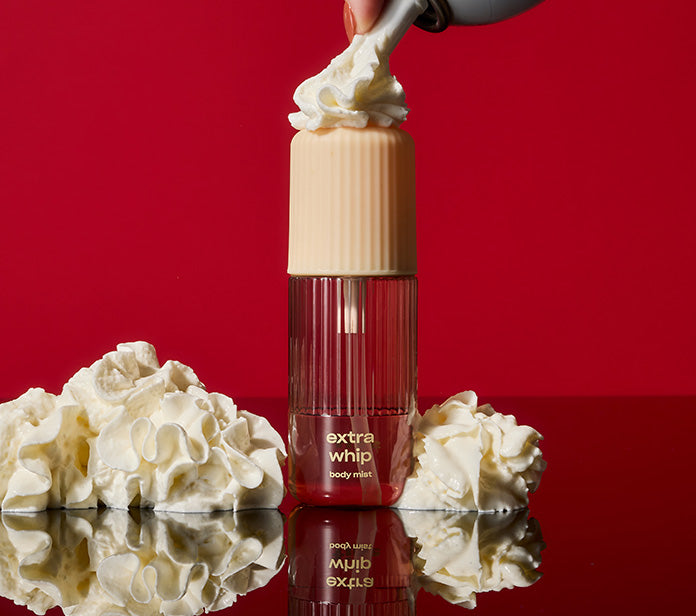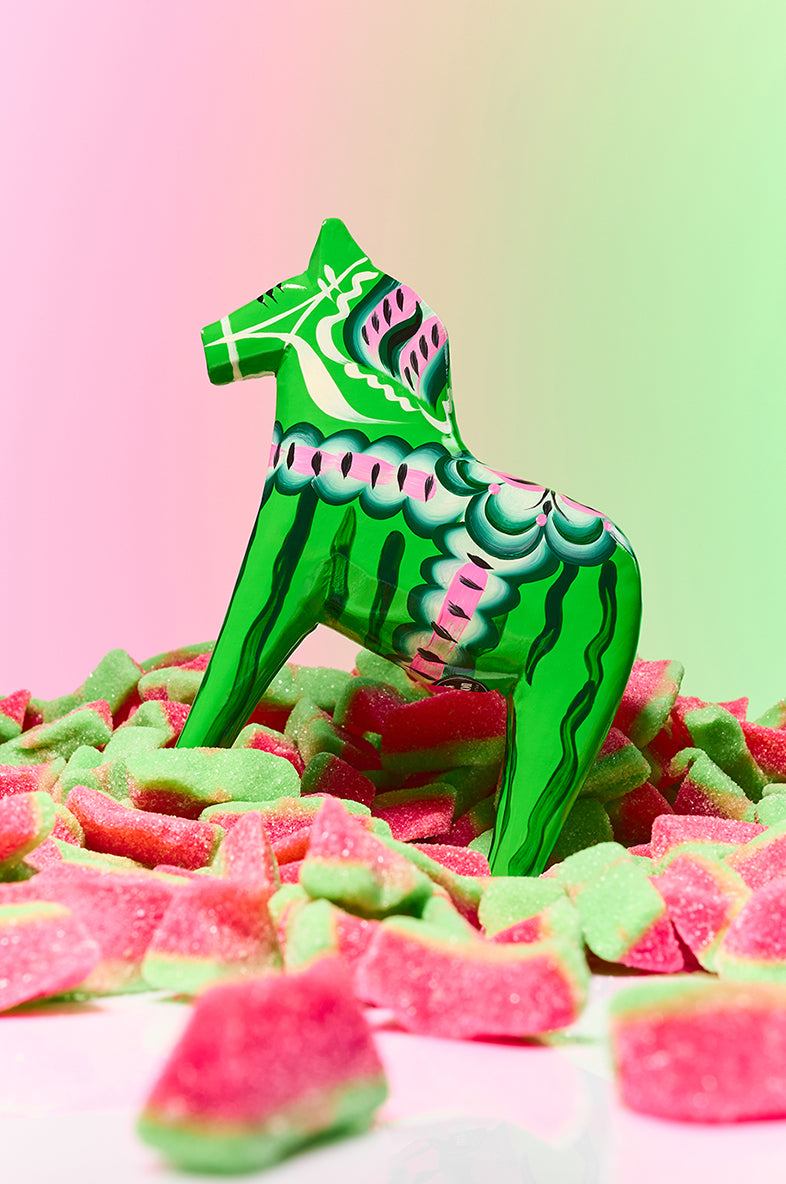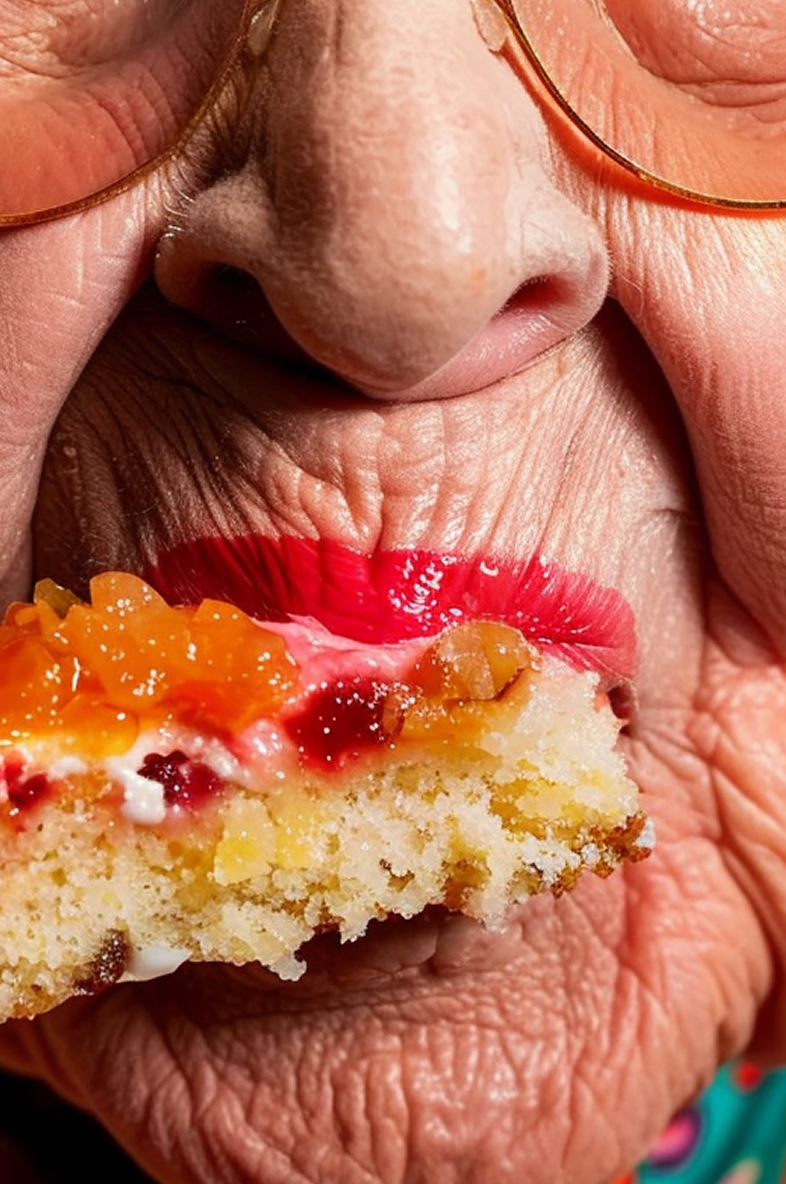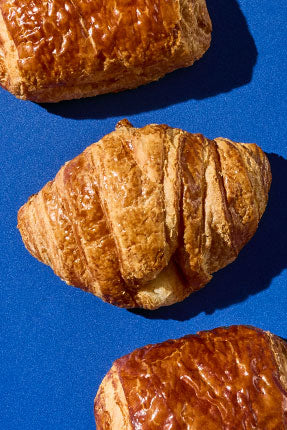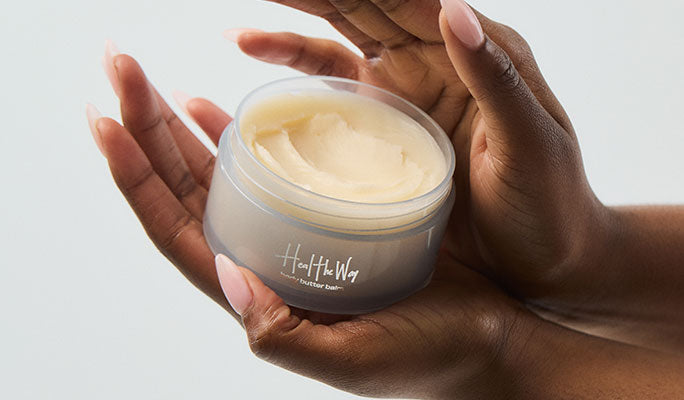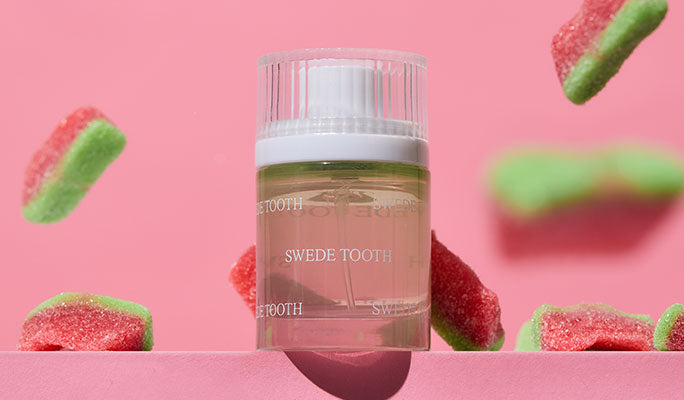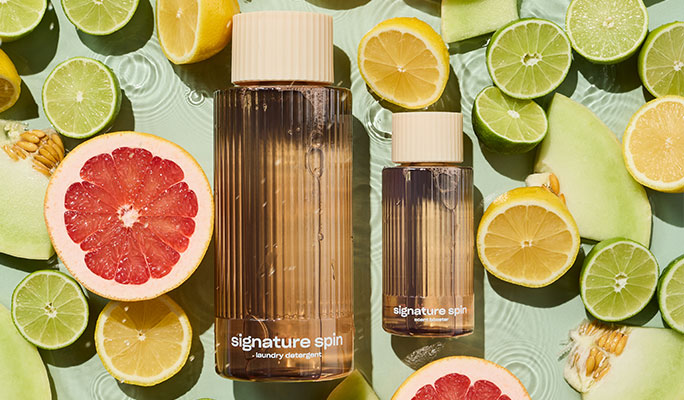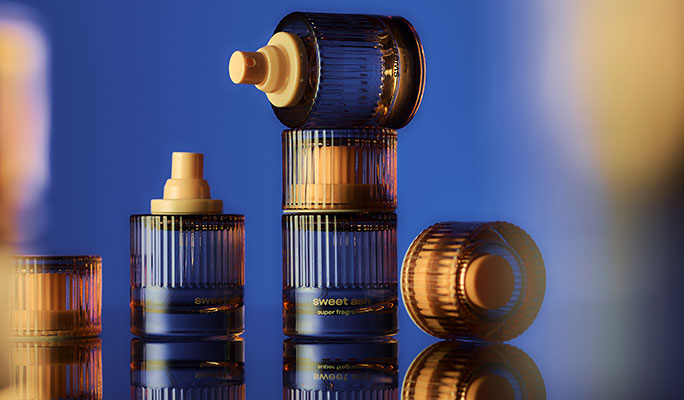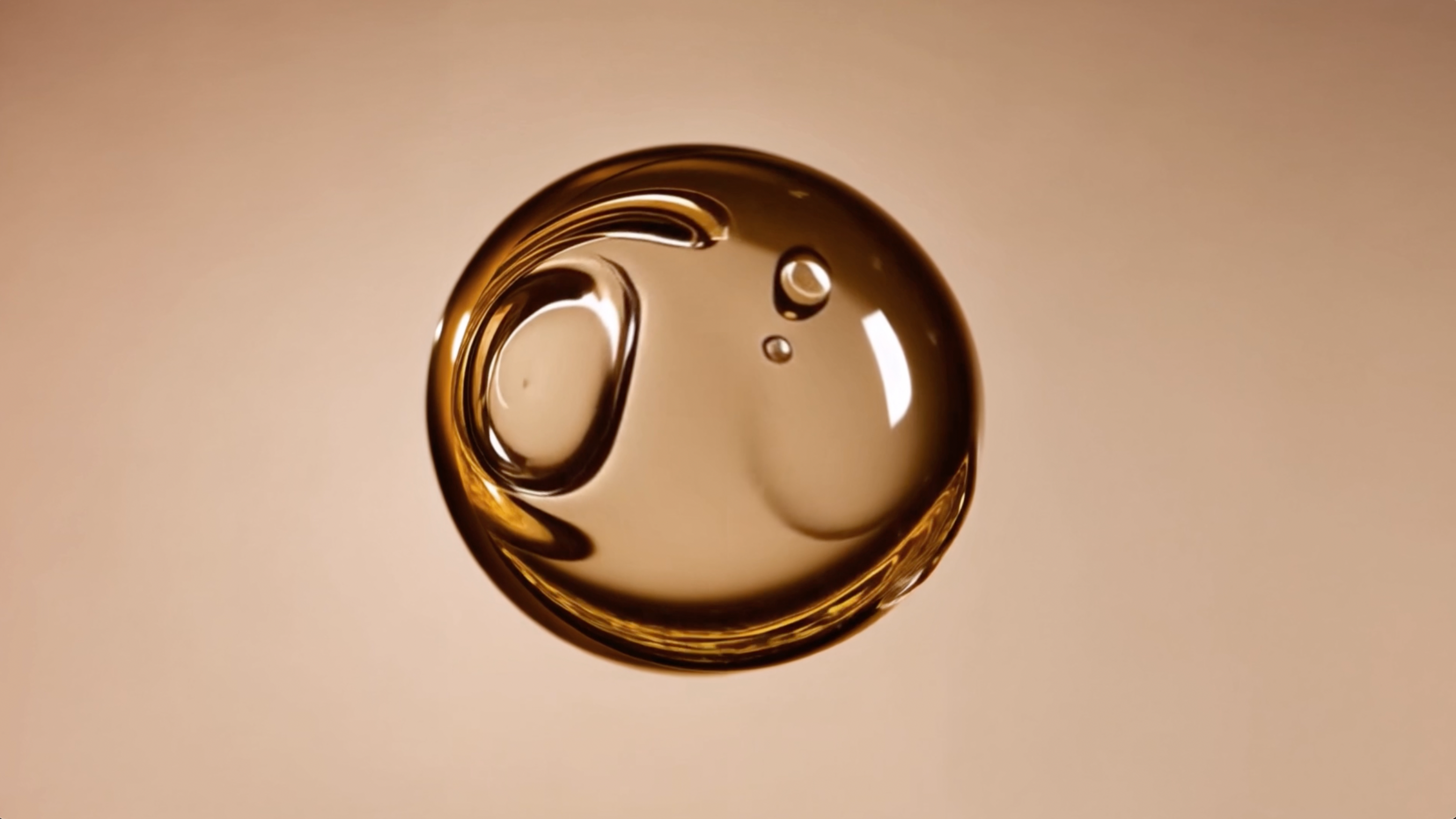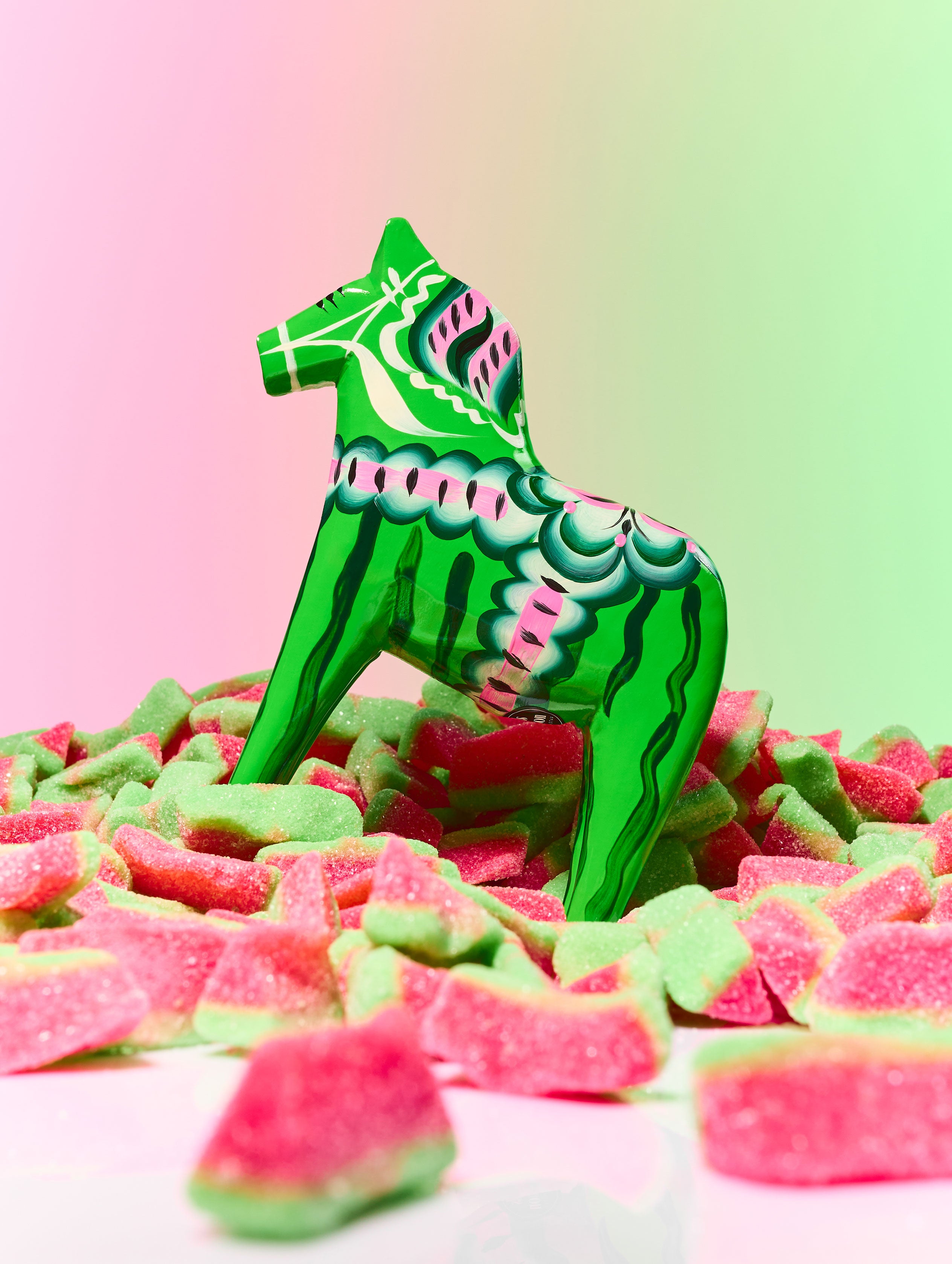Key takeaways:
- Perfume can smell different on different people.
- Fragrances interact with each person’s unique body chemistry, skin type, and skin pH, creating a different smell.
- Testing out fragrances on your skin rather than test papers can help you find a scent that works well for you personally.
It’s true — perfume smells different on everyone! This is because it interacts with each person's unique body chemistry, from skin type and pH balance to lifestyle choices and natural scent. Altogether, this blend changes how fragrance notes open, evolve, and linger on your skin.
When it comes to picking out perfumes, personal chemistry is everything. It’s the reason a fragrance can smell soft and floral on you but bold and spicy on someone else. A fragrance that smells incredible on one person might not have the same effect on another. The reality is that it actually comes down to science.
Today, we’re going to help you better understand your unique body chemistry and how different fragrances react to you on a molecular level. By the end of this article, you’ll know more about yourself, what scents work best for you, and how to improve your perfume application.
Why Does Perfume Smell Different on Everyone?
Your unique skin chemistry can change the longevity of perfumes and how they smell on your skin. Let’s unpack the different factors.
Skin Type
You might be surprised to learn that your skin type can play a role in how a perfume smells upon application and throughout the day. In case you don’t already know, skin types are a way of categorizing your skin’s distinct qualities and needs. The five skin types are oily, dry, combination, sensitive, and normal.
When it comes to perfume, your body’s natural oils, called sebum, will affect how strong the fragrance smells. If your skin tends to be on the oilier side, there is a possibility that the sebum will trap the scent molecules and lock them into your skin.
There are two main benefits to wearing scents on oily skin. The first is that the smell of your perfume will be enhanced and better projected. The second is that you won’t have to re-apply as often because the product will stay on your skin for long periods of time.
On the opposite end of the skin type spectrum is dry skin. If you tend to have dryer skin, the smell of your perfume is more likely to fade at a faster rate. This is because, with less body oil, you aren’t able to trap the fragrance molecules for as long.
This doesn’t mean you can’t enjoy body sprays like everyone else! You might just need to apply a couple of extra spritzes throughout the day. A bonus tip is to keep your skin moisturized with one of your favorite nourishing lotions before applying your perfume — it helps give your fragrance something to stick to.
Skin pH
Your skin’s pH level can have a significant effect on how a perfume smells when applied to your skin. Skin pH describes how acidic your skin is and plays a key part in keeping unwanted bacteria away from your body.
The standard skin pH level is 4.7 to 5.75. Body sprays and their fragrance notes are formulated with these numbers in mind, but slight changes in pH levels can alter different perfumes in various ways.
For example, if your perfume has musky base notes, a higher pH level can intensify these scents. Conversely, if the top notes in your fragrance are citrusy, the acids in your skin can make the scent fade faster.
Having an understanding of your body chemistry and its pH level can help take your perfume game to the next level. You’ll know how to select fragrances that complement your skin with ease.
Diet
Believe it or not, your diet can affect how you smell and how your perfume smells on you. Generally speaking, certain foods and beverages tend to make the human body sweat more. These include anything that is spicy and has caffeine.
There are also foods that, when consumed and broken down in your body, release sulfur-like compounds. These include common strong-smelling ingredients like onion and garlic. Having spicy and strong smelling foods consistently in your diet can lead to stronger body odor.
This means that you may need to apply more perfume than usual to better mask your natural body odor. In some instances, these foods can also cause your perfume to have sharper undertones.
Lifestyle
Similar to diet, certain lifestyle choices can impact the way your perfume smells. For example, when you consume alcohol, it can alter your hydration levels. Your hydration levels are based on the amount of fluids in your body.
Alcohol is a diuretic, which can lead to less water and electrolytes, as well as dryer skin. As we’ve already discussed, your skin texture can influence how perfume reacts to your body. Your perfume may not smell as intense on alcohol-induced dry skin.
Your workout regimen can also influence how fragrances last on your body and what they smell like. If you apply perfume prior to engaging in a high-intensity workout, there’s a high possibility that you’ll sweat off the product and need to use more.
Low intensity workouts like walking and yoga can also influence how your perfume smells. When doing this type of exercise you might not sweat as much, but your body temperature will still rise. Your increased body heat can emit the scents more intensely.
This is actually why it’s best to put perfume on your pulse points, like your wrists, neck, and the backs of your knees. These areas are naturally warmer than other areas of your body, and the heat activates the scent molecules and makes your perfume smell stronger.
What Are Pheromones?
Pheromones are a natural chemical released through your skin, and they play a major role in attraction and social connection. Animals detect pheromones with the vomeronasal organ located inside their nose. They can pick up pheromones that are in the air or resting on objects, which triggers a reaction in your body.
The majority of adult humans have a vomeronasal organ in their nasal septum. The organ contains olfactory sensory cells that detect odorants and send information to the brain.
It’s important to note that, unlike with animals, pheromones are not necessarily the most important factor we consider when it comes to mating and socializing. Usually it’s a combination of things, both physical and psychological.
Many perfumes and body sprays have done their best to incorporate synthetic pheromones into their products. The goal is to use ingredients that mimic natural pheromone scents in humans and create a fragrance that enhances attraction in the people around you.
How To Find Perfumes That Work for Your Chemistry
Now that you have a better understanding of your skin chemistry and how it can impact the way you smell, you can find a perfume that works best for you. Here are ways to get one step closer to identifying your signature fragrance.
Try Different Scents
The first step to finding a good perfume is to start trying different scents. Sometimes, trial and error is the best way to discover your perfect match. The only issue with this process is that it can get a little pricey.
Thankfully, you can use Snif’s Try Before You Buy program. Our unique sampling system makes it easy to test new aromas from the comfort of your own home, all without breaking the bank.
The way it works is that you place an order for a singular fragrance or for a fragrance bundle. You’ll receive a full-sized bottle in addition to a smaller sample size, and you’ll have seven days to try out the scents and see what you like the mos — you’ll only be charged for what you keep.
Try Layering
Sometimes, the secret to discovering the right scent for you is that it takes more than one. Instead of sticking to a singular smell, layering perfumes can be a fun way to blend all the fragrances you love.
Be careful when blending fragrances — pick a more neutral base fragrance that complements your body chemistry, and then select the other fragrances based on what works with the initial scent.
For example, maybe you’ll want to use something musky as your base layer and then a spicy fragrance on top with complementary notes. You’ll discover your unique scent and the layers that go with it in no time at all.
Take Note of Your Favorites
Not sure where to start on your fragrance journey? Think back to smells you have enjoyed in the past. By taking note of perfumes you have previously gravitated towards, you’ll be finding little clues as to what complements your natural body chemistry.
Don’t just keep track of the perfumes you like, but go a step further and find out what they’re made of. You may begin to observe that the fragrances you love share some common notes. These notes will end up making the right perfume for you!
Spend Time With Each Scent
When trying out anything new, it’s important that you really give it a chance before making your final judgment. Just because you aren’t sold on the way a product smells in the bottle or on someone else doesn’t mean you won’t like it for yourself.
And even if you think you’ve found the right scent for you, you may discover that your feelings change after the product has interacted with your skin chemistry for a few hours. Give your body a day or two to live in the fragrance before you come to a final conclusion.
Finding Your Fit
Congrats, you have officially graduated from Fragrance 101. With a clear understanding of how your body can change the way a perfume’s aroma develops and how to select the right one for you, we’re confident that you’re going to be the best-smelling person in the room.
FAQS
Does perfume smell different on everyone?
Yes, perfume smells different on everyone. This is because it blends with each person’s unique oils, skin pH, and body temperature. These small differences make the same fragrance develop differently on every individual.
Why does my perfume smell different on me than on my friend?
Your perfume smells different on your friend because your skin types, hormones, diet, and environment are different. These factors can amplify or reduce certain notes and even alter their perceived scent.
Can I make a perfume smell the same on me as it does on someone else?
You can’t make a perfume smell exactly the same on you as it does on someone else because everyone’s chemistry is unique, but you can get closer by choosing similar fragrance families, moisturizing first, and mirroring their application process.
How do I find a perfume that works with my body chemistry?
To find a perfume that works on your body chemistry, test fragrances on your skin — not just paper — and wear them for a full day to see how they change. Pay attention to which notes feel most “like you,” and consider Snif’s try-before-you-buy model to experiment at home before committing to a purchase.
Sources:
Skin type classification systems old and new | PubMed
The pH of the skin surface and its impact on the barrier function | PubMed
Hydration Status and the Diuretic Action of a Smal Dose of Alcohol | Oxford Academic
